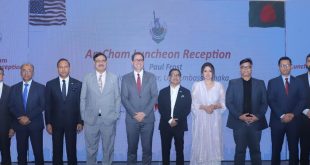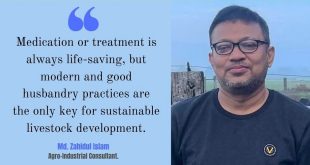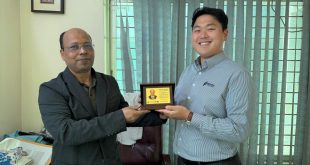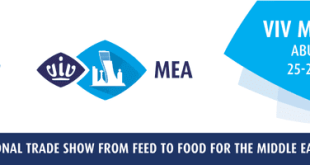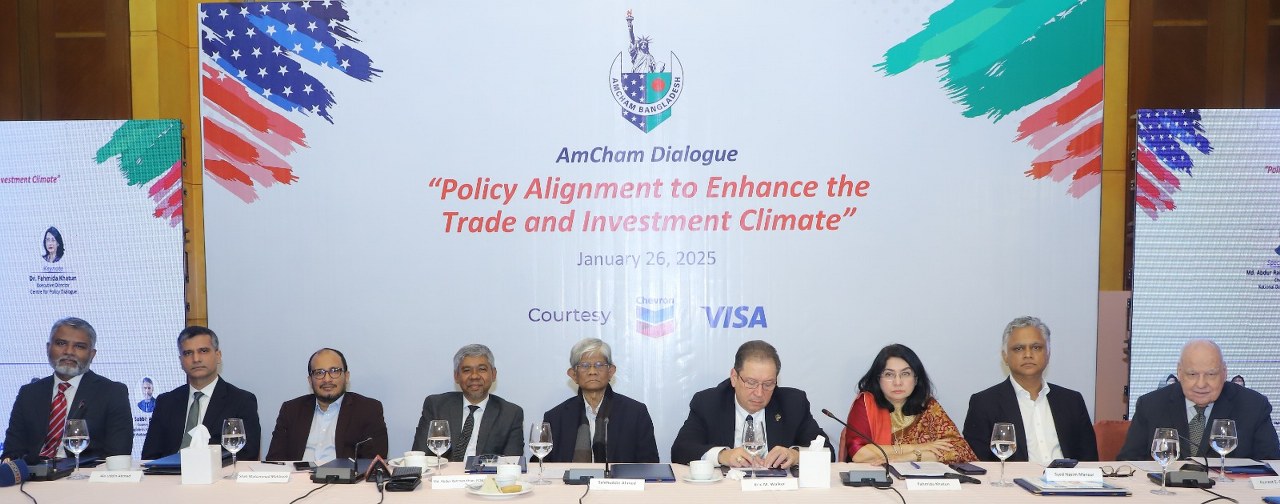 The American Chamber of Commerce in Bangladesh (AmCham) held an AmCham Dialogue on “Policy Alignment to Enhance the Trade and Investment Climate.” on January 26, 2025, at the Westin Dhaka. Dr. Salehuddin Ahmed, Honorable Advisor, Ministry of Finance, graced the program as the Chief Guest, and Mr. Md. Abdur Rahman Khan, FCMA, Chairman, National Board of Revenue (NBR), has also attended as the Special Guest. Dr. Fahmida Khatun, Executive Director, CPD presented the keynote at the dialogue event.
The American Chamber of Commerce in Bangladesh (AmCham) held an AmCham Dialogue on “Policy Alignment to Enhance the Trade and Investment Climate.” on January 26, 2025, at the Westin Dhaka. Dr. Salehuddin Ahmed, Honorable Advisor, Ministry of Finance, graced the program as the Chief Guest, and Mr. Md. Abdur Rahman Khan, FCMA, Chairman, National Board of Revenue (NBR), has also attended as the Special Guest. Dr. Fahmida Khatun, Executive Director, CPD presented the keynote at the dialogue event.
The event was consisted with a high level panel discussion with the Honorable Advisor, Ministry of Finance, Chairman, National Board of Revenue (NBR), Mr. Forrest E. Cookson, Economist and Former AmCham President, Mr. Ala Uddin Ahmad, Director – FICCI and CEO, MetLife Bangladesh, Mr. Sabbir Ahmed, Country Manager, Bangladesh, Nepal & Bhutan, VISA Worldwide Singapore Pte. Ltd. , Mr. Shah Mohammad Mahboob, Executive Member, BIDA, Mr. Syed Nasim Manzur, MD – Apex Footwear Ltd. and President, LFMEAB, including high officials from Ministry of Power, Energy and Mineral Resources, Ministry of Foreign Affairs, Ministry of Commerce, Ministry of Environment, Forest and Climate Change, Information and Communication Technology Division, NBR, Bangladesh Trade and Tariff Commission, EPB, Petro Bangla, Bangladesh Bank, Dhaka Mass Transit Company Limited, BIDA, BSTI, Bangladesh Power Development Board, BEI, and other regulatory bodies, distinguished guests from the international organizations, and renowned economists attended the roundtable. AmCham Vice President Mr. Eric Walker, Treasurer Mr. Al-Mamun M. Rashel and Executive Committee Members Mr. Md. Moinul Huq, Ms. Rubaba Dowla, and Mr. Mirza Shajib Raihan attended the dialogue event, along with several other AmCham members.
In the opening remarks, Mr. Eric M. Walker, Vice President, AmCham Bangladesh and President, Chevron Bangladesh mentioned Bangladesh needs to improve its business environment, infrastructure, and policies to enhance trade and investment competitiveness and align with global sustainability trends.
Dr. Fahmida Khatun, Executive Director, CPD emphasized revising policies, simplifying taxes, ensuring exchange rate stability, and improving infrastructure to boost trade and prepare for LDC graduation.
Dr. Ahmed, in his opening remarks, emphasized the interim government’s commitment to fostering an exclusive environment conducive to investment, particularly focusing on foreign direct investment (FDI). He outlined how aligning policies across sectors can simplify processes and create a more predictable business environment that attracts international investors.
Mr. Khan stressed the NBR’s efforts in streamlining tax policies and improving the ease of doing business in Bangladesh, emphasizing ongoing reforms to attract foreign investment and foster an entrepreneurial ecosystem for economic growth. Additionally, he recommended shifting the focus from customs revenue as the primary income source to more sustainable taxation systems, such as income taxes and VAT.
Mr. Ala Uddin Ahmad, Director FICCI and CEO MetLife Bangladesh highlighted that as global trade relationships realign after new US administration taking office, Bangladesh should look for new opportunities that could never be imagined before. He also called for treating existing foreign investors equitably so that they do the investment promotion for Bangladesh.
Mr. Sabbir Ahmed, Country Manager for Bangladesh, Nepal & Bhutan at VISA Worldwide Singapore Pte, highlighted the need for policy changes to promote digital transactions suggesting that the NBR should align proof of tax return submission requirement with consumer loan and credit card limits above 300,000 BDT.
During the roundtable, Mr. Muhammad Imrul Kabir, Corporate Affairs Director at Chevron Bangladesh, highlighted Chevron’s 60% contribution to the country’s low-cost natural gas and 80% of condensate, addressing a significant amount payment shortfall and seeking support for Petrobangla payment and their onshore development proposal.
The dialogue focused on key topics such as the need for transparent, consistent, and well-coordinated policies across various industries. Experts and business leaders discussed how policy misalignments often create barriers to investment, particularly for foreign enterprises. The conversation underscored the importance of aligning fiscal, trade, and regulatory policies to ensure that Bangladesh remains competitive in the global market.
Business leaders present at the event agreed that while Bangladesh has made significant strides in improving its trade and investment climate, there is still room for further reforms. They stressed the need for enhanced coordination between the private and public sectors to address challenges and capitalize on emerging opportunities, especially in sectors like technology, manufacturing, and infrastructure. Key discussion points included payment issues/compliance between the government and stakeholders, improvements in investment policy, return on investment, turnover tax, tax redemption at the source, the needs of the recycling industry, and creating a more favorable tax environment compared to virgin material imports.
The dialogue concluded with a call to action for both the government and the private sector to collaborate in creating a more favorable environment for FDI. Participants expressed confidence that, with the right policy alignment, Bangladesh could unlock its full potential as a regional business hub and continue to build on its impressive economic trajectory. During the discussion, attendees shared their challenges and suggestions for policy alignment in the foreign trade and investment climate.
 Agrinews24 কৃষির সাথে, কৃষকের পাশে
Agrinews24 কৃষির সাথে, কৃষকের পাশে

















